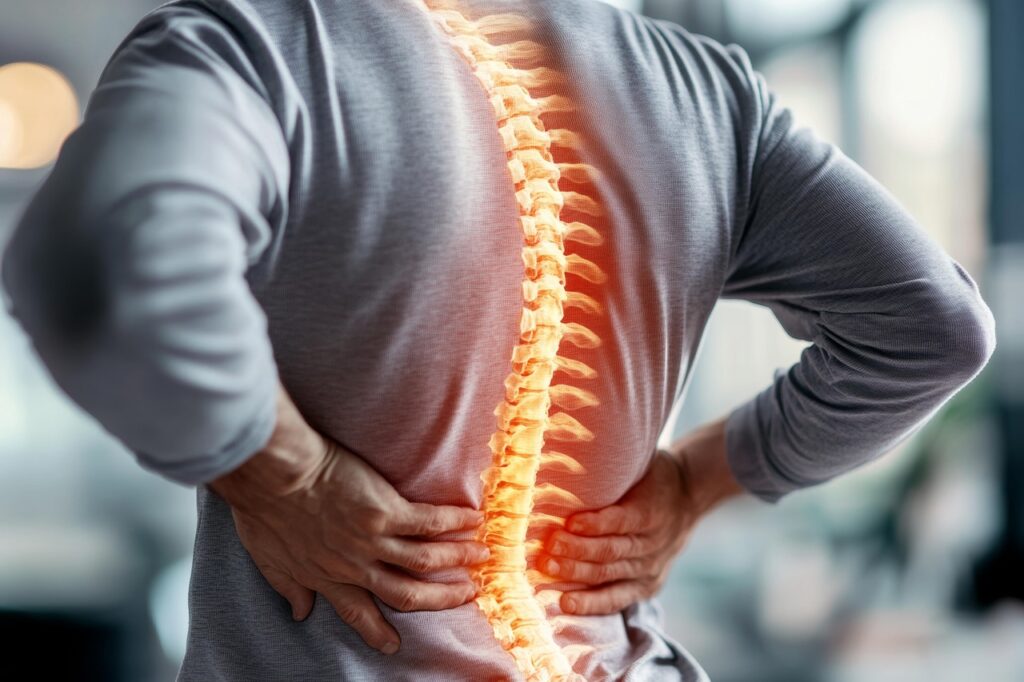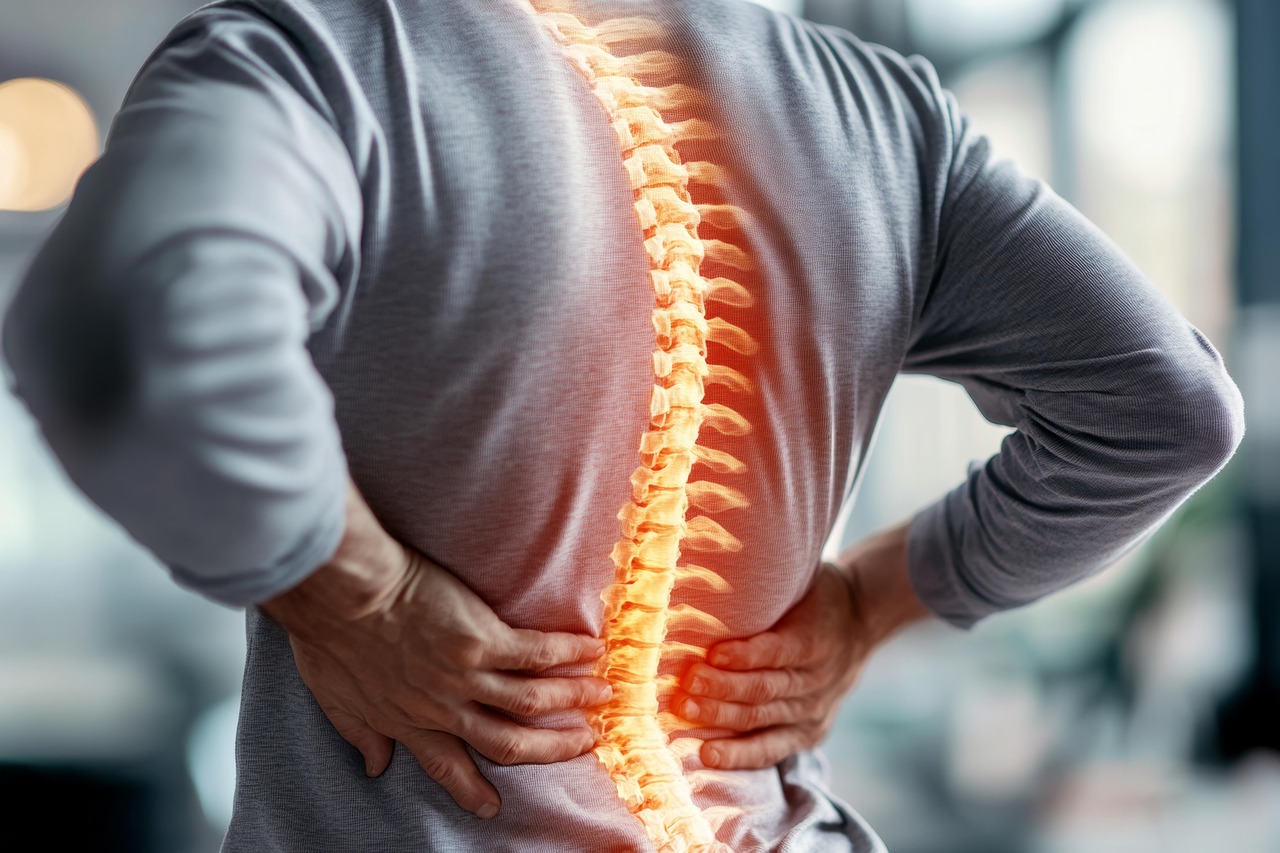
Menopause is a natural phase of life, but it comes with challenges—one of the biggest being bone loss. Did you know that up to 20% of bone density can vanish during the menopause transition? That’s a staggering number, and it’s why osteoporosis, a condition where bones become brittle and prone to fractures, affects 1 in 10 women over 60 worldwide.
Fractures aren’t just painful; they can steal your mobility and independence. But here’s the good news: you can take steps to protect your bones. In this 2025 guide, we’ll dive into why menopause weakens bones and share eight science-backed strategies to stop bone loss in its tracks. Let’s get started!
The Estrogen-Bone Connection: Why Menopause Weakens Bones
When you hit menopause, your ovaries stop producing estrogen, a hormone that’s like a superhero for your bones. This drop triggers a cascade of changes that can leave your skeleton vulnerable.
How Estrogen Regulates Bone Remodeling
Your bones are alive, constantly breaking down and rebuilding in a process called remodeling. Estrogen keeps this in balance by slowing down bone breakdown (resorption) and supporting new bone formation. When estrogen levels plummet during menopause, resorption speeds up, and new bone can’t keep pace. The result? Thinner, weaker bones are more likely to fracture. Research shows that low estrogen increases the risk of osteoporosis, especially in the spine, hips, and wrists.
The 5-7 Year “Danger Zone” Post-Menopause
The first five to seven years after menopause are critical. During this time, women can lose up to 10% of their bone density, with some studies suggesting even higher losses. This “danger zone” is when your bones are most at risk, especially if you have factors like early menopause (before age 45), a family history of osteoporosis, or a low body weight. The good news? Acting now can make a big difference.
Read: Supplements for Bone Density
8 Science-Backed Ways to Prevent Bone Loss
You don’t have to sit back and let bone loss happen. Here are eight practical, research-supported ways to keep your bones strong and healthy.
1. Weight-Bearing Exercise (Best Types)
Exercise is your bones’ best friend. Weight-bearing and resistance exercises stimulate bone formation by putting stress on your skeleton. Think of it as a workout for your bones! The best types include:
- Walking, jogging, or dancing: These get your bones working against gravity.
- Strength training: Lifting weights or using resistance bands builds bone density.
- Yoga or tai chi: These improve balance, reducing fall risk.
Aim for 30–40 minutes most days of the week. A 2024 study found that women who did regular weight-bearing exercise had a 5% higher bone density than those who didn’t. Start slow and consult a trainer if you’re new to exercise.
2. Calcium + Vitamin D Optimization
Calcium is the building block of bones, and vitamin D helps your body absorb it. Women over 50 need 1,200 mg of calcium and 800–1,000 IU of vitamin D daily. Get calcium from foods like dairy, leafy greens, tofu, or fortified cereals. Vitamin D comes from sunlight, fatty fish, or supplements. A simple blood test can check your vitamin D levels—many women are deficient, especially in winter. Reviews of calcium and vitamin D supplements are mixed; some show fracture reduction, while others suggest benefits depend on your baseline levels. Always talk to your doctor before starting supplements to avoid overdoing it.
3. HRT Pros/Cons for Bones
Hormone Replacement Therapy (HRT) replaces estrogen, slowing bone loss and reducing fracture risk by up to 40%. It’s especially effective for women under 60 or within 10 years of menopause. Bioidentical HRT, like transdermal patches, may have a lower risk profile. However, HRT isn’t for everyone. Risks include a slight increase in breast cancer or blood clots, especially in older women. A 2023 study praised HRT’s bone benefits but stressed personalized plans. Reviews on X highlight HRT’s popularity for bone health, but some users worry about side effects like vaginal bleeding. Discuss with your doctor to weigh the pros and cons.
4. Incorporating Magnesium and Vitamin K2
Magnesium and vitamin K2 are unsung heroes for bones. Magnesium supports bone formation and works with calcium, while vitamin K2 directs calcium to your bones, not your arteries. Foods like nuts, seeds, spinach, and fermented foods (like natto) are great sources. Supplements are an option, but reviews are cautious—high doses of magnesium can cause diarrhea, and K2’s benefits need more research. A 2024 integrative health guide recommends pairing these with calcium and vitamin D for a holistic approach. Check with your doctor for the right dosage.
5. Prioritizing Anti-Inflammatory Nutrition
What you eat matters. An anti-inflammatory diet, like the Mediterranean diet, supports bone health by reducing inflammation that can speed up bone loss. Load up on:
- Fruits and vegetables: Rich in antioxidants and minerals.
- Healthy fats: Think olive oil, avocados, and nuts.
- Lean proteins: Fish, poultry, or plant-based options like beans.
Limit processed foods, sugar, and red meat, which can increase inflammation. A 2023 study linked Mediterranean diets to higher bone density in postmenopausal women. Bonus: this diet also helps with heart health and weight management.
6. Limiting Alcohol and Avoiding Smoking
Smoking and heavy drinking are bone thieves. Smoking reduces bone density by interfering with estrogen and calcium absorption. Excessive alcohol (more than one drink per day for women) disrupts bone remodeling. Quitting smoking and sticking to moderate alcohol intake can protect your bones. A 2025 health guide emphasized that even cutting back on alcohol can lower fracture risk. If you need help quitting smoking, talk to your doctor about support programs.
7. Exploring Bone-Supportive Supplements
Beyond calcium and vitamin D, other supplements may help. Bisphosphonates, like alendronate, slow bone loss and reduce fracture risk by 40–50%, but side effects like heartburn cause some to stop. Denosumab and teriparatide are newer options for high-risk women, with studies showing up to 74% fracture reduction. Reviews of supplements like collagen or strontium are less conclusive, with experts calling for more research. Always consult your doctor before trying new supplements, as they can interact with medications.
8. Staying Consistent with Follow-Up and Monitoring
Bone health is a long-term commitment. Regular check-ups with your doctor can track your progress. Blood tests can monitor vitamin D and calcium levels, while bone density scans (more on that below) assess your risk. A 2024 review stressed that women who followed up consistently with their healthcare team had better outcomes. Set reminders for appointments and stick to your bone health plan—it’s worth it
When to Get a Bone Density Scan
A bone density scan, or DEXA scan, is a painless test that measures bone strength. It’s recommended for:
- All women over 65.
- Women under 65 with risk factors like early menopause, family history, or low body weight.
- Postmenopausal women with a recent fracture.
Scans every two years are typical, but your doctor may suggest more frequent tests if you’re at high risk. A 2025 guide from BASS Medical Group called DEXA scans “essential” for catching osteopenia (early bone loss) before it becomes osteoporosis. If your scan shows low density, your doctor can tailor a plan to strengthen your bones.
Read: 6 Effective Tips for Maintaining Bone Health as You Age
Frequently Asked Questions
Q: Can I reverse bone loss after menopause?
A: You can’t fully reverse it, but you can slow it down and build new bone with exercise, nutrition, and treatments like HRT or bisphosphonates. Early action is key!
Q: Are supplements enough to prevent osteoporosis?
A: Supplements like calcium and vitamin D help, but they’re not a cure-all. Combine them with exercise, a healthy diet, and medical advice for the best results.
Q: Is HRT safe for everyone?
A: No, HRT has risks, especially for women over 60 or with certain health conditions. Talk to your doctor to see if it’s right for you.
A Word From Vitamins For Woman
At Vitamins For Woman, we’re passionate about empowering women through menopause with practical, science-backed advice. Bone health is just one piece of the puzzle. Here are some related topics to explore:
What Supplements Tighten Skin?
Collagen and vitamin C may support skin elasticity, but evidence is mixed. A balanced diet and hydration are just as crucial.
Can I Take Omega-3 For Hormonal Imbalance?
Omega-3s reduce inflammation and may ease menopause symptoms, but they don’t directly fix hormonal imbalances. Consult your doctor.
The 4 Best Vitamins For Skin Radiance
Vitamins C, E, A, and zinc promote glowing skin. Pair them with a nutrient-rich diet for best results.
Histamine Intolerance and Menopause
Low estrogen can worsen histamine issues, leading to allergies or skin reactions. An anti-inflammatory diet may help.
Menopause and Body Odor: Why It Happens & How to Manage It
Hormonal shifts can change body odor. Good hygiene, breathable fabrics, and diet tweaks can keep it in check.
Menopause Vitamins
No single vitamin cures menopause symptoms, but calcium, vitamin D, and B vitamins support overall health.
Menopause and Sex Drive: Why It Changes + 10 Ways to Rekindle Desire
Low libido is common, but exercise, stress management, and communication with your partner can reignite the spark.
Menopause and Heart Palpitations: Causes and 7 Proven Remedies
Hormonal fluctuations can trigger palpitations. Stress reduction, hydration, and avoiding caffeine help.
Menopause and Cognitive Decline: Why Your Brain Feels Foggy & How to Fix It
Estrogen loss can cause brain fog. Sleep, exercise, and mental stimulation can sharpen your mind.
Menopause Night Sweats Remedies
Cool bedding, breathable clothing, and avoiding triggers like spicy foods can reduce night sweats.
Menopause Anxiety Relief
Mindfulness, exercise, and therapy can ease anxiety. Some find relief with supplements like magnesium, but check with your doctor.
Final Thoughts
Menopause doesn’t have to mean fragile bones. By understanding the estrogen-bone connection and taking proactive steps—like exercise, nutrition, and possibly HRT—you can protect your skeleton for years to come. Start small, stay consistent, and work with your healthcare team to build a plan that fits your life. Your bones are worth it!

